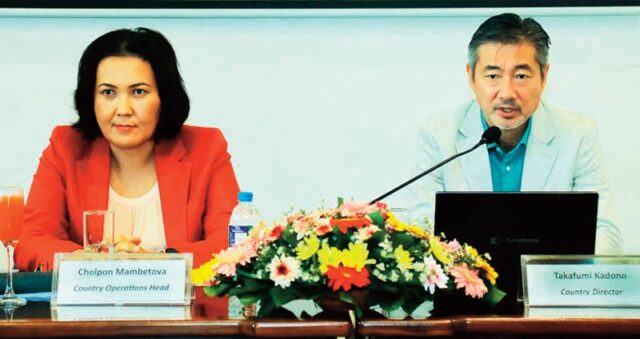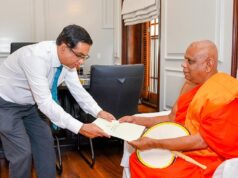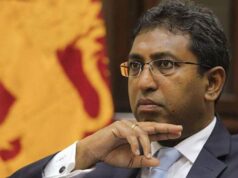The Manila-based Asian Development Bank (ADB) has earmarked an indicative envelope of US$900 million for Sri Lanka’s development in 2025.
Subject to government approval, the funding will support macroeconomic stability, power, agriculture, finance, tourism, and skills development. The assistance will be provided through policy-based loans, results-based lending, investment projects, and technical assistance initiatives, according to senior representatives of the ADB in Sri Lanka.
ADB Country Operations Head Cholpon Mambetova stated that discussions are currently underway with the Sri Lankan government to determine the specific type of support required.
During the Country Programming Mission, scheduled for March, officials will finalise the project pipeline for 2025 to 2028.
“We have investment projects and a number of technical assistance projects provided on a grant basis, mainly to support government institutions in capacity development, analytical research, and institutional strengthening activities,” Mambetova said.
In the first quarter of 2025, the ADB will hold a Tripartite Portfolio Review Meeting (TPRM) with the Ministry of Finance and other line ministries.
The TPRM will assess the ongoing US$4 billion portfolio, reviewing project implementation, identifying challenges, and exploring solutions. “So far, we have had a good year. In terms of project implementation, none of our projects are at risk,” she added.
In 2024, the ADB allocated US$808 million for various projects, including:
Enhancing Small and Medium-sized Enterprise Finance Project – US$100 million
Power Sector Reforms and Financial Stability Programme (Subprogrammes 1 & 2) – US$300 million
Water Supply and Sanitation Reform Programme – US$100 million
Mahaweli Water Security Programme (Tranche 3) – US$93 million
Financial Sector Stability and Reform Programme (Subprogramme 2) – US$200 million
Energy Activities Supporting Facility (Activity 1) – US$15 million
ADB Country Director Takafumi Kadono emphasised the bank’s role in providing financial support when Sri Lanka lacks access to capital markets or other lending institutions.
“We do not provide budget support. Instead, we ensure that the country undertakes structural and policy reforms to address underlying weaknesses, enabling it to recover, rebuild, and achieve sustainable and inclusive growth,” he said.
Kadono further noted that ADB-financed projects undergo a rigorous due diligence process and are prioritised based on necessity.
“The investments we finance are critical, not just ‘nice to have’,” he added.








